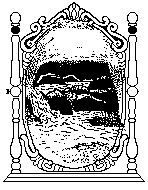
imagining
"Unclose your mind. You are not a prisoner.
You are a bird in flight, searching the skies for dreams."
Haruki Murakami (Hard-boiled wonderland and THE END OF THE WORLD)

Visualizing means reclaiming your powers of imagination you had as a child. It may seem rather childish, but so what. It lightens up the dark recesses of our unconscious and heightens awareness. You will start using the space you have without interfering with other people's space. It is impossible to imagine just how much you really know, for everything you have sensed throughout your life has been recorded.
Psycho-analysis tells us that the most formative years of our lives are the first three, paradoxically the time we seem to remember least. That we are unaware of what happened does not mean that we no longer carry the information. It just means that we don't remember. In our growth we seem to go through different stages of evolution, the atmosphere in the womb is very much like the sea(!), tapping from this hidden knowledge is what imagination is all about. Training your imagination by retrieving your powers of visualization is important. It helps you to see behind things, to become aware of the potential and opportunities. Factual looking involves the observing of the facts and dangers, imagining is a next step to create awareness of the -hidden- opportunities (cf. crisis). It means filling your 'living space' in a different manner, not by actively moving but by actively observing, while remaining still. You 'zero out'. the idea is to reframe the problem into a goal and the simplest way is to forget about the problem, and to ask yourself HOW can I do it. This may be easier said then done therefore here are some suggestions:
Find a peaceful place and sit down quietly.
First ask yourself some questions e.g.
What is my situation?
Why is it a problem?
When did it become a problem?
Who am I?
Where am I?
How did it become a problem?
What do I really want?
Sit still and do not try to move for at least 10 minutes. Do not try to sort the information and images that will start to come. Watch them but do not act. Watch those thoughts as if you were a great lake in which stones fall down. The point is to let the stones (thought) safely land on the bottom of this lake. Then they may provoke new feelings and intuitions. After some minutes of tranquility you will have more ideas than time to realize them.
Since gulliver travelled to Brobdingnag, you could imagine yourself to be Gulliver, a restless person, looking for new horizons. You are left behind on a foreign shore when your mates are chased by a giant. You run and find yourself in a gigantic cornfield. You are found and by behaving to the best of your abilities you are accepted as an interesting piece of vermin. Yet you are not seen as a human being. Visualize yourself in a cage, exactly like a small room. Small things which did not used to trouble you suddenly become very important. Defend yourself against gigantic wasps and rats as big as bulls. Start visualizing everything around you to exact scale. Exactly the way Swift described everything in detail. Then make your problem as big as the Brobdingnagians. However, it no longer is your main problem it is now their problem, because 'minor' things like cats and dogs become much more important. Regard it as Gulliver regarded his situation. Visualize your 'problem' from high above in your 'cage', fly over your problem, just look and do not try to find solutions!
Think of the way Gulliver managed and was finally picked up by a bird and thrown into the sea. Then your are picked up by a ship and return to your own country with a bounty of new ideas.